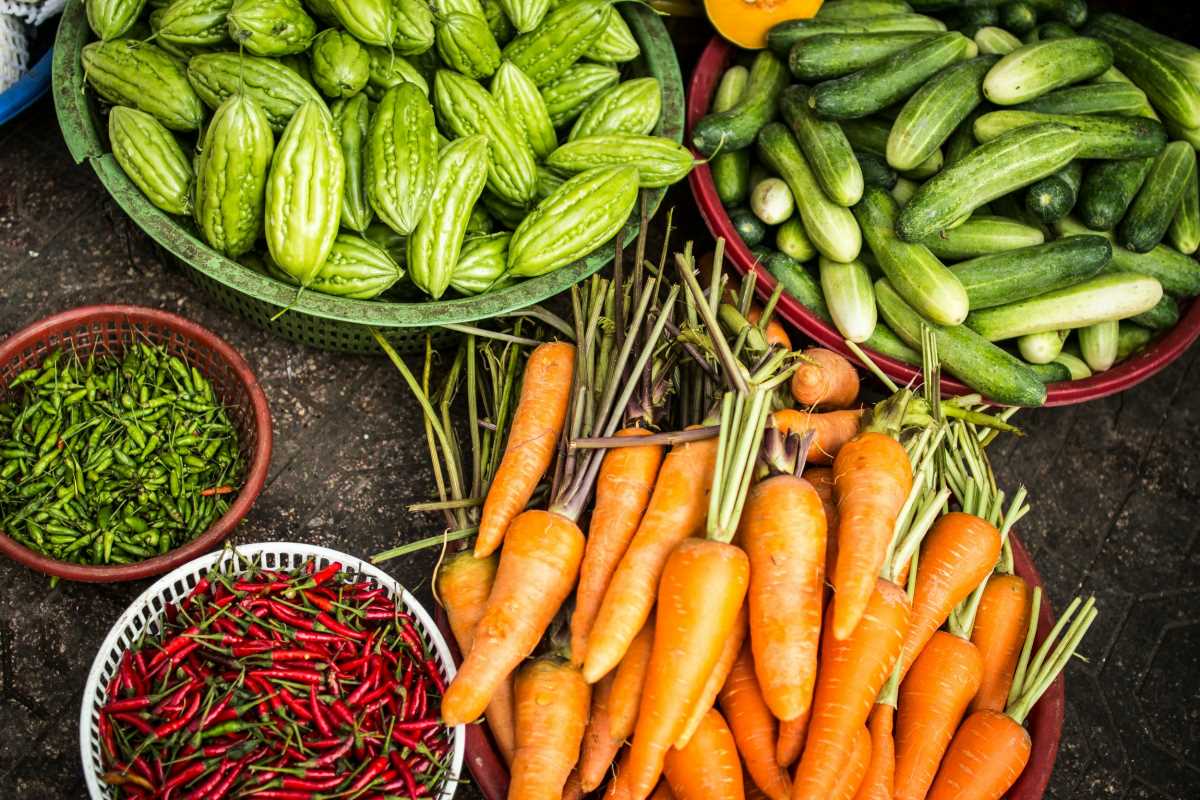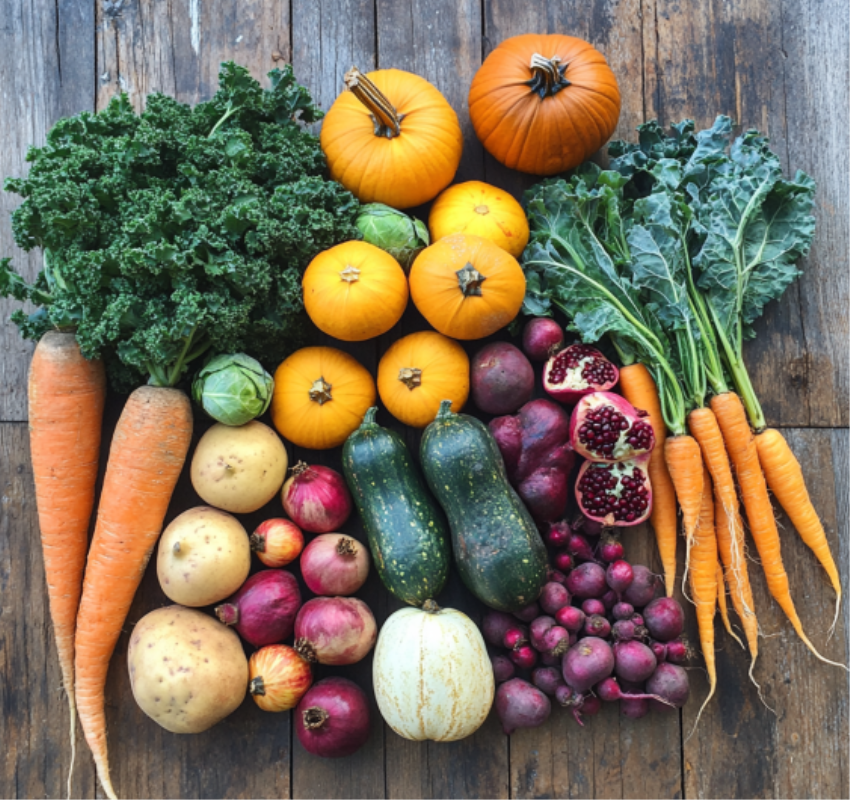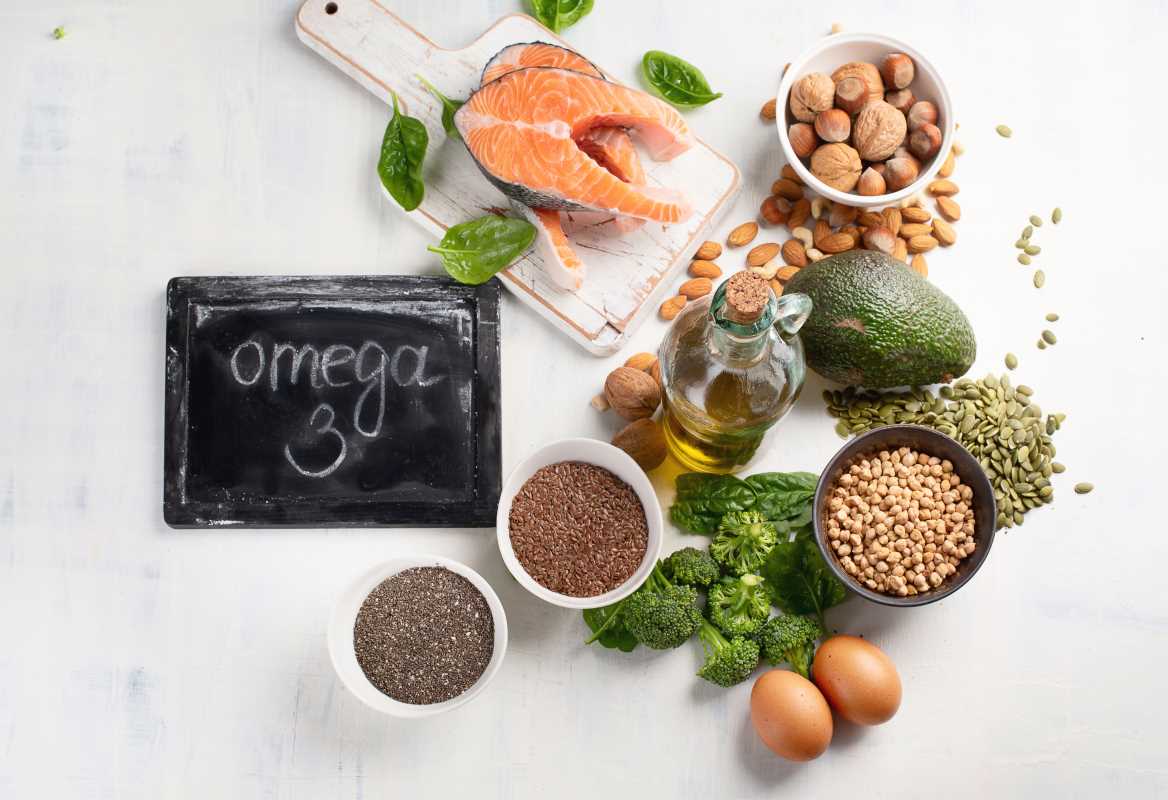Omega-3 fatty acids are essential to a healthy diet, known for their incredible benefits for heart, brain, and joint health. However, as a vegan, you might worry about meeting your Omega-3 needs, especially since certain types are predominantly found in fish and seafood. The good news? With a little planning and knowledge, you can easily get enough Omega-3s from plant-based sources.
This guide will explore the types of Omega-3s, their benefits, and how you can meet your requirements on a vegan diet.
The Importance of Omega-3s
Omega-3 fatty acids play a critical role in many bodily functions. Here are the main benefits:
- Heart Health: They support cardiovascular health by lowering triglycerides, reducing inflammation, and improving blood vessel function.
- Brain Function: Omega-3s are a crucial component of brain cell membranes, helping maintain memory, focus, and overall cognitive function.
- Joint Health: They have anti-inflammatory properties that reduce joint stiffness and arthritis symptoms.
- Mood and Mental Health: Studies suggest they can help reduce anxiety and depression.
- Eye Health: Omega-3s support retinal development and protect against age-related macular degeneration.
Given these wide-ranging benefits, ensuring an adequate intake of Omega-3s is essential for everyone, including vegans.
Types of Omega-3s
Omega-3s are not all the same. There are three main types:
Alpha-Linolenic Acid (ALA):
ALA is a short-chain Omega-3 found in plant-based sources like flaxseeds, chia seeds, and walnuts. While your body cannot produce Omega-3s itself, it can convert ALA into EPA and DHA, though this process is somewhat inefficient (only about 5-10% of ALA is converted).
Eicosapentaenoic Acid (EPA):
EPA is a long-chain Omega-3 primarily found in marine sources. It contributes to reducing inflammation and improving heart health.
Docosahexaenoic Acid (DHA):
DHA is another long-chain Omega-3 essential for brain function, eye health, and nervous system development. Like EPA, it’s typically found in fatty fish or fish oil.
Vegans can focus on two strategies to meet their EPA and DHA needs—eating plenty of ALA-rich foods and supplementing directly with algae-based DHA and EPA.
Best Plant-Based Sources of Omega-3s
1. Flaxseeds
Flaxseeds are one of the richest sources of ALA Omega-3s. Just one tablespoon of ground flaxseeds provides over 1,500 mg of ALA. Make sure to grind the seeds before eating to maximize nutrient absorption.
How to Use: Sprinkle ground flaxseeds onto oatmeal, mix them into smoothies, or use them as an egg substitute in baking.
2. Chia Seeds
These tiny seeds are packed with Omega-3s, fiber, and protein. They absorb liquid, forming a gel-like texture, which makes them versatile in recipes.
How to Use: Add chia seeds to plant-based yogurts, make chia pudding, or include them in baked goods.
3. Hemp Seeds
Hemp seeds contain a good balance of Omega-3 and Omega-6 fatty acids, supporting overall inflammatory balance in the body.
How to Use: Toss them onto salads, blend them into sauces, or enjoy sprinkled over avocado toast.
4. Walnuts
Walnuts are not only a delicious snack but also a great source of ALA. Replacing other nuts with walnuts in your diet can boost your Omega-3 intake significantly.
How to Use: Add chopped walnuts to trail mix, oatmeal, or baked dishes like banana bread.
5. Algae-Based Supplements
The most reliable way to obtain DHA and EPA as a vegan is through algae-based supplements. Algae is the same source where fish derive their Omega-3 content, making it a direct and sustainable option for vegans.
Tip: Look for algal oils that specify a blend of both DHA and EPA.
Tips for Incorporating Omega-3s into Your Daily Routine
- Smoothie Add-Ins:Boost your morning smoothies with a tablespoon of ground flaxseeds, chia seeds, or hemp seeds. For example, blend frozen bananas, almond milk, spinach, and chia seeds for a nutrient-rich start to your day.
- Upgrade Your Salads: Sprinkle hemp seeds or chopped walnuts over salads as a crunchy topping. Drizzle with a flaxseed oil-based vinaigrette for an extra Omega-3 dose.
- Batch-Bake Omega-Boosted Snacks: Use ground flaxseeds or chia seeds in homemade energy bars, muffins, or cookies. This way, you’ll always have a nutrient-packed snack ready to go.
- Choose Algal Oil Supplements: Make supplements part of your daily routine to guarantee sufficient levels of DHA and EPA. They are particularly helpful for individuals who are pregnant, breastfeeding, or experiencing increased Omega-3 needs.
- Switch to Flaxseed Oil: Use flaxseed oil as a salad dressing base or drizzle it over roasted vegetables. Avoid cooking with it, as heat can degrade its nutritional value.
Challenges and Misconceptions
Conversion Inefficiency of ALA: The body’s limited ability to convert ALA into EPA and DHA means vegans need to either consume higher amounts of ALA or use supplements to ensure adequate DHA and EPA levels.
Perceived Lack of Options: Some people mistakenly believe that Omega-3s are only found in fish or seafood. On the contrary, plant-based sources like flaxseeds and algae provide effective alternatives for vegans.
Overemphasis on Ratios: While Omega-3 and Omega-6 fatty acid balance is important, focusing on incorporating more whole plant-based foods into your diet should be the priority.
Getting enough Omega-3s on a vegan diet is entirely achievable with a strategic approach. By focusing on ALA-rich foods like flaxseeds, chia seeds, and walnuts, and supplementing with algae-based DHA and EPA when needed, you can meet your Omega-3 needs while enjoying delicious, plant-based meals. Not only will this support your heart, brain, and joint health, but it also adds variety and nutrition to your diet in the most flavorful way possible. Small changes can lead to big results, proving that a vegan lifestyle and Omega-3 wellness go hand in hand.







